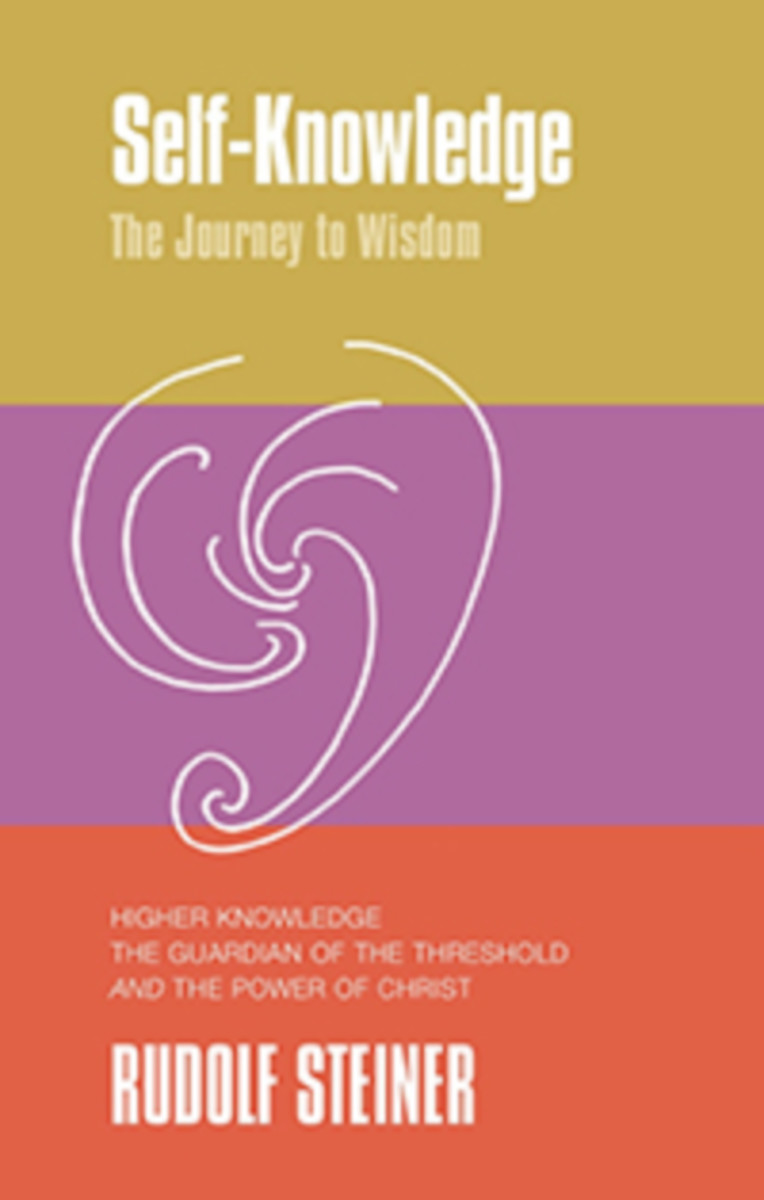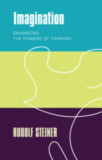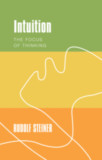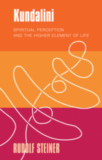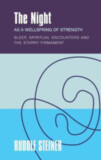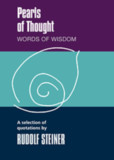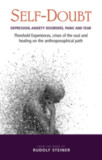Self-Knowledge, the Journey to Wisdom
Higher Knowledge, the Guardian of the Threshold and the Power of Christ
- Publisher
Rudolf Steiner Press - Published
1st August 2015 - ISBN 9781855844124
- Language English
- Pages 98 pp.
- Size 5.5" x 8.5"
Selections from various volumes in The Collected Works of Rudolf Steiner
Many spiritual traditions speak of a “guardian” or “dweller” who protects the threshold to the spiritual world, warning the unprepared to pause in their quest for higher knowledge. The Guardian reveals the consequences of our negative actions and points to the full reality of our untransformed nature. This experience is said to be one of the deepest and most harrowing on the inner path, but is an essential precondition to any form of true initiation.
The words “know yourself” were inscribed at the entryway to the ancient Greek temple of Apollo. Those who sought initiation in the mysteries were instructed to look within themselves first. Likewise, as spiritual seekers today we need true self-knowledge to distinguish between what belongs to our awareness and what is objectively part of the spiritual environment. Steiner taught that, as long as we draw back from such knowledge, our spiritual quest will be unsuccessful.
When we begin to engage with Anthroposophy, it becomes clear that Steiner’s teachings do not constitute a doctrine or set of dogmas but a path toward deeper understanding. In this essential handbook, the editor gathered many of Rudolf Steiner’s statements on the intricate and arduous path of self-knowledge that offer steady support and guidance.
This volume is a translation from German of Erkenne dich selbst (Rudolf Steiner Verlag, 2010).
C O N T E N T S:
About this Book by Andreas Neider
1. The Importance of Self-knowledge for Acquiring Higher Knowledge
2. Seeking to Form an Idea of the “Guardian of the Threshold”
3. The Guardian of the Threshold and Some Characteristics of Supersensible Consciousness
4. Morality on the Path of Knowledge
5. Self-knowledge and Nearness to Christ
6. The Powers of Chris in Our Own Life
7. Knowing Ourselves in the Other
8. Conclusion: Self-knowledge—World Knowledge
Notes and References
Rudolf Steiner
Rudolf Steiner (b. Rudolf Joseph Lorenz Steiner, 1861–1925) was born in the small village of Kraljevec, Austro-Hungarian Empire (now in Croatia), where he grew up. As a young man, he lived in Weimar and Berlin, where he became a well-published scientific, literary, and philosophical scholar, known especially for his work with Goethe’s scientific writings. Steiner termed his spiritual philosophy anthroposophy, meaning “wisdom of the human being.” As an exceptionally developed seer, he based his work on direct knowledge and perception of spiritual dimensions. He initiated a modern, universal “spiritual science” that is accessible to anyone willing to exercise clear and unbiased thinking. From his spiritual investigations, Steiner provided suggestions for the renewal of numerous activities, including education (general and for special needs), agriculture, medicine, economics, architecture, science, philosophy, Christianity, and the arts. There are currently thousands of schools, clinics, farms, and initiatives in other fields that involve practical work based on the principles Steiner developed. His many published works feature his research into the spiritual nature of human beings, the evolution of the world and humanity, and methods for personal development. He wrote some thirty books and delivered more than six thousand lectures throughout much of Europe. In 1924, Steiner founded the General Anthroposophical Society, which today has branches around the world.


